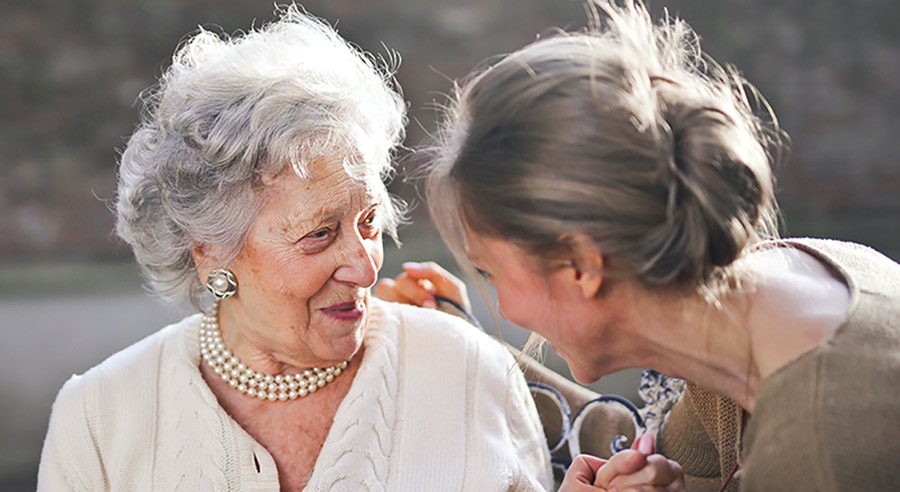Professional NDIS Support Coordinator Services: An Overview to Home Care Providers in Australia
Professional NDIS Support Coordinator Services: An Overview to Home Care Providers in Australia
Blog Article
How In Home Treatment Givers Address the Special Difficulties and Emotional Requirements of Households Looking For Assistance for Their Loved Ones
At home caretakers play a crucial role in navigating the intricacies faced by households looking for assistance for their liked ones. By comprehending special household characteristics and supplying tailored emotional support, these specialists not just address prompt care requirements yet additionally cultivate an environment of count on and open communication (in home caregivers).
Recognizing Family Members Dynamics
Comprehending family members dynamics is essential for giving efficient in-home treatment, as each family runs within an unique collection of relationships and communications. These dynamics encompass various elements, including interaction styles, duties, and power structures that affect exactly how care is delivered and received. The caregiver needs to identify these variables to ensure that care plans line up with the family members's values and expectations.
Different families may exhibit unique patterns of interaction, such as hierarchical frameworks or collective methods. In some families, a main decision-maker might hold substantial impact, while in others, decisions may be a lot more democratic. Comprehending these patterns assists caretakers customize their techniques to fit the family's certain demands.
Additionally, social backgrounds play a crucial role in shaping family characteristics. Caregivers need to be culturally qualified, acknowledging and respecting varied methods and beliefs that may affect treatment preferences.
Eventually, a detailed understanding of family members dynamics helps with enhanced interaction, promotes depend on, and improves the caregiver's capacity to support the family members successfully. By recognizing the detailed web of obligations and partnerships, caretakers can create a helpful atmosphere that advertises well-being for both the individual getting treatment and the family overall.
Giving Emotional Support
Giving emotional assistance is a vital component of in-home treatment that considerably boosts the health of both the specific getting care and their member of the family. In the context of caregiving, emotional support entails active listening, empathy, and recognition of feelings. Caregivers are educated to acknowledge the emotional battles that families encounter, such as seclusion, anxiousness, and sense of guilt, and to supply a caring existence that alleviates these concerns.
By promoting open interaction, caretakers develop a risk-free room for member of the family to share their fears and issues. This dialogue not just urges psychological launch yet likewise enhances trust fund between the caretaker and the family. Additionally, caregivers can offer practical methods to help family members handle stress and anxiety and advertise strength.

Inevitably, the emotional assistance provided by in-home caregivers boosts the top quality of life for both customers and their families, advertising an extra caring and understanding caregiving setting. This all natural approach ensures that emotional needs are addressed along with physical health factors to consider.
Managing Daily Treatment Tasks
Managing daily care tasks is a critical aspect of at home care that guarantees people receive the assistance they need to keep their health and self-reliance. Caretakers play a vital duty in aiding with activities of everyday living (ADLs), that include bathing, dressing, brushing, and meal preparation. By handling these responsibilities, caregivers assist ease the physical and psychological worries that family members might encounter while caring for their enjoyed ones.
In enhancement to individual care, caregivers are also tasked with medication management, guaranteeing that customers follow suggested does and routines. This oversight is crucial for maintaining health and wellness and avoiding adverse results from missed out on or inaccurate medicines. Caregivers frequently help with flexibility, supplying support for clients moving around their homes, thus reducing the danger of drops and enhancing total security.

Promoting Open Interaction
Efficient monitoring of day-to-day treatment jobs often hinges on the high quality of interaction in between caretakers, customers, and their families. Open communication fosters a setting where issues, preferences, and feedback can be openly exchanged, guaranteeing that care is tailored to satisfy individual needs. Caretakers must focus view website on normal check-ins with both customers and their family members, promoting discussions that resolve any problems or modifications in care requirements.
Utilizing numerous interaction techniques-- such as face-to-face conferences, call, and created updates-- can improve understanding and supply families with assurance. It's vital for caretakers to proactively pay attention, showing compassion and regard for the psychological landscape of the family members. Urging inquiries from relative can likewise help clarify treatment plans and strengthen the caretaker's dedication to openness.
In addition, keeping open lines of interaction makes it possible for caregivers to acknowledge and react without delay to any type of changes in a client's wellness condition or emotional wellness. This aggressive technique not only enhances the caregiver-client dynamic however also equips family members to get involved actively in the care process. Ultimately, promoting open communication is important for improving the high quality of in-home care and advertising an encouraging atmosphere for all entailed.
Structure Trust and Relationships
Depend on is the cornerstone of effective in-home treatment, as it establishes a foundation for meaningful relationships between caregivers, clients, and their families. Building this count on needs regular, transparent communication and a real dedication to the health of those involved. Caregivers should show dependability through preparation, adherence to care plans, and responsiveness to the requirements and preferences of customers.
To promote count on, caregivers need to engage in active listening, making sure that households feel heard and understood. This involves not only addressing immediate problems look at this site yet additionally anticipating future demands, thus empowering family members and boosting their sense of control. Creating relationship via shared experiences and considerate communications can additionally solidify these partnerships.
Furthermore, caregivers must be educated to identify and deal with the emotional complexities faced by households. By showing empathy and compassion, they can alleviate concerns and unpredictabilities, strengthening trust fund. Routine updates and check-ins with household members can also improve transparency, enabling them to really feel engaged and notified concerning their liked one's care.
Eventually, building count on and nurturing partnerships in in-home care is a joint procedure that substantially affects the high quality of care provided, promoting a helpful setting that profits everyone included.
Verdict
At home caretakers play an important role in resolving the one-of-a-kind difficulties and psychological demands of families. By recognizing family members dynamics, providing emotional support, and fostering open communication, caretakers boost the general caregiving experience. Their ability to manage daily care jobs while building count on and strong connections cultivates a supportive atmosphere for customers and their households. Inevitably, the thoughtful involvement of caretakers considerably adds to boosted well-being and resilience for those browsing the intricacies of caregiving.
Recognizing household dynamics is critical for providing reliable in-home care, as each family runs within a distinct set of partnerships and communications.Providing psychological support is a crucial element of in-home care that significantly boosts the wellness of both the individual getting treatment and their family participants. By taking on these obligations, caretakers help minimize the physical and emotional worries that households might encounter while caring for their liked ones.
Effective monitoring of day-to-day care jobs commonly pivots on the top quality of interaction between caretakers, clients, and their family members - home care providers.Trust fund is the keystone of effective in-home care, as it establishes a structure for meaningful connections in between caregivers, clients, and have a peek at this website their households
Report this page